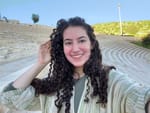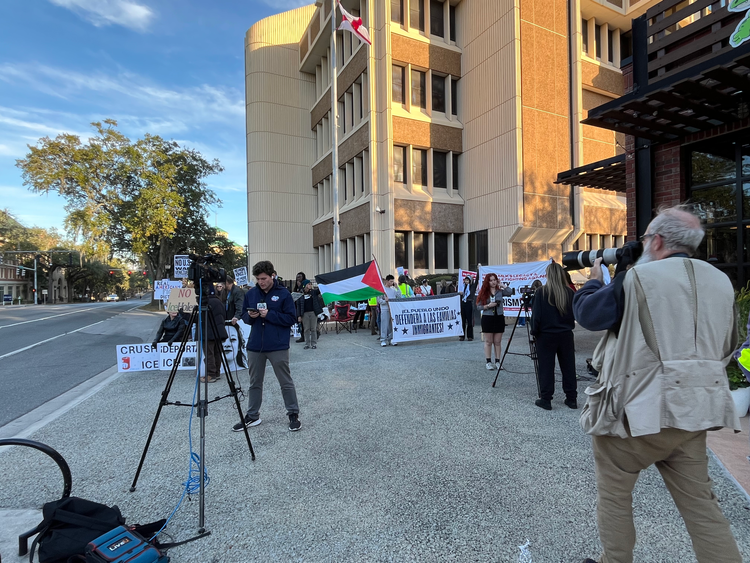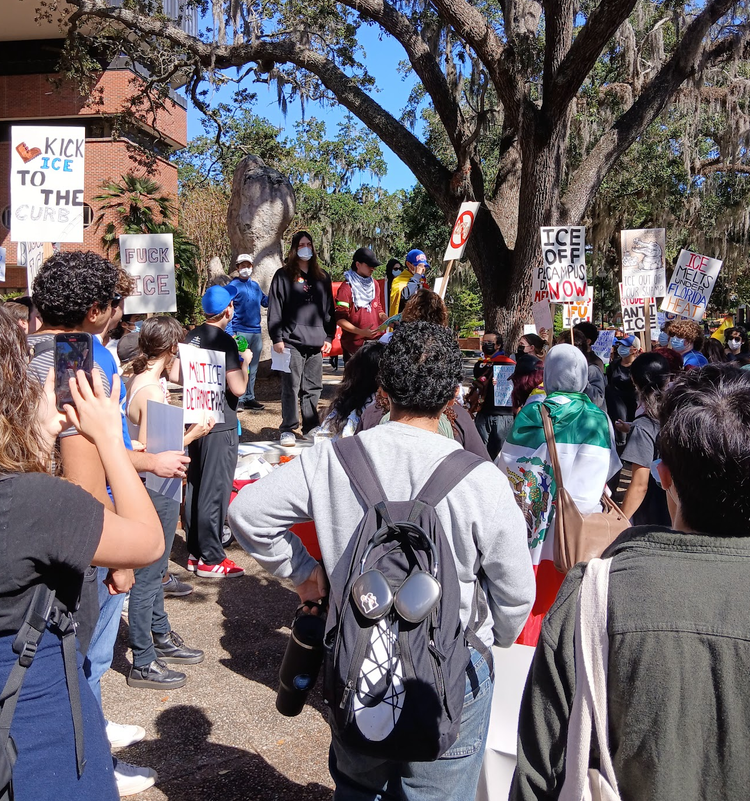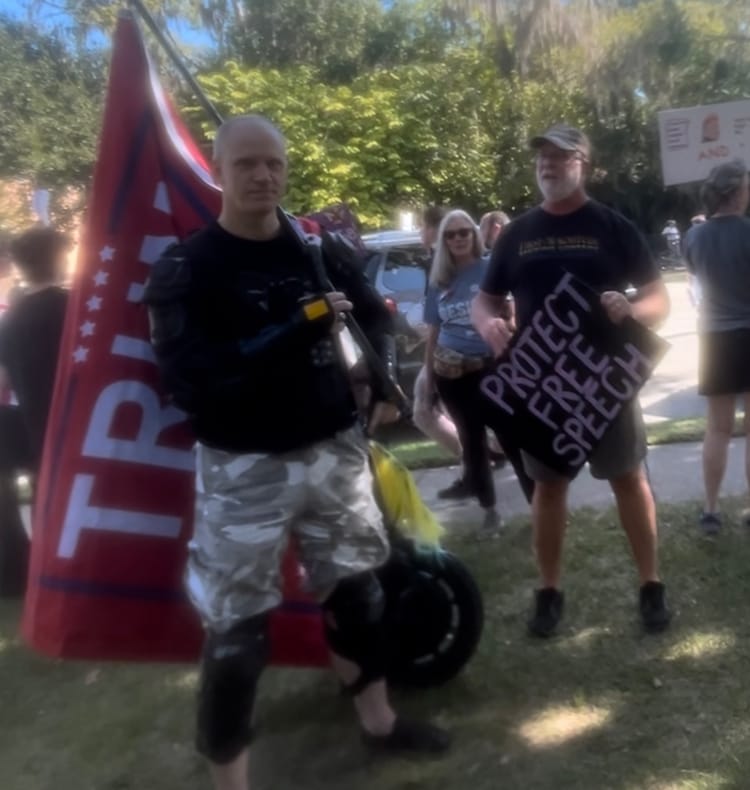Gaza’s Voices Reach Gainesville: Medical Student Kareem Reada Shares His Story with SJP
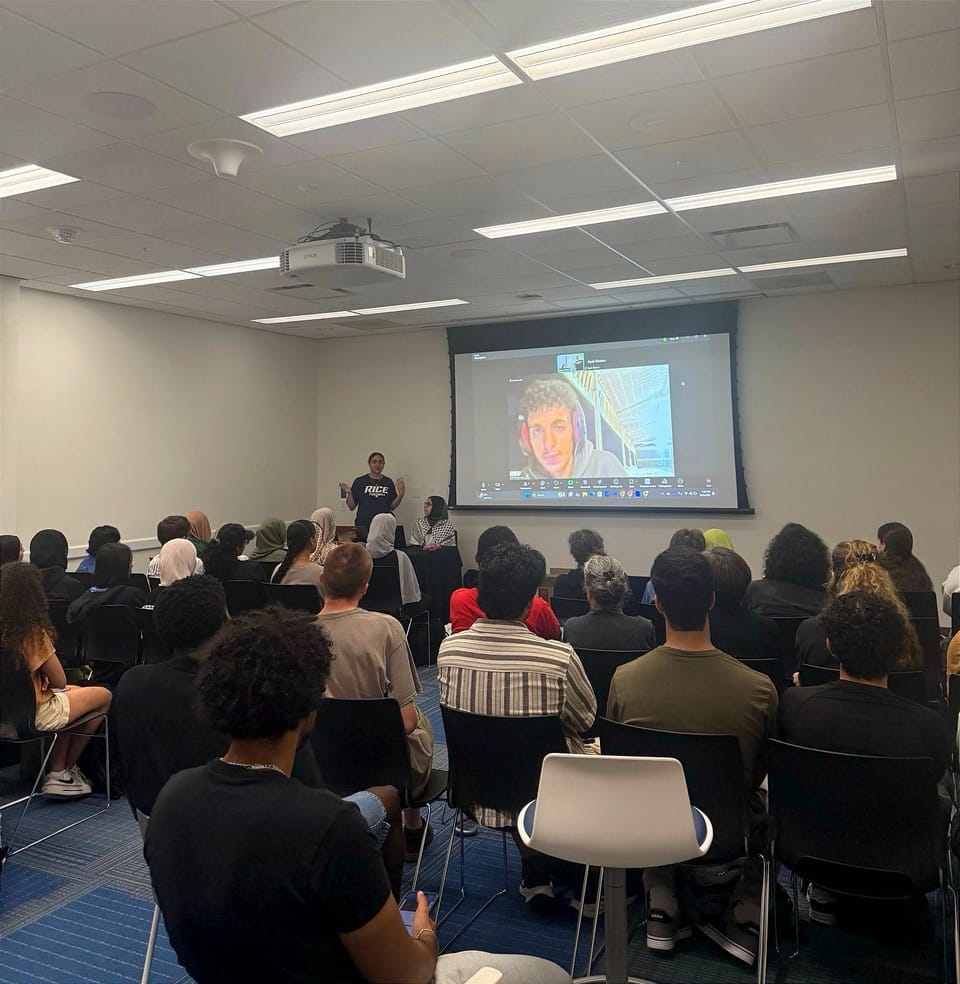
In October 2033, Israeli forces stormed into Gaza, unleashing a relentless assault by air, land, and sea– a campaign unlike anything the besieged strip had ever endured. Within weeks, entire neighborhoods were wiped out and erased from the civil registry. Amid mass evacuation orders, families fled through clouds of dust and fire, clutching what little they could carry, as the army herded Palestinians into schools, universities, and makeshift shelters under the false promise of safety.
But in Gaza, safety was an illusion. In the coming months, it became painfully clear that there were no safe havens. As US-funded missiles tore through classroom floors, burying decades of research, academic archives, and the dreams of a generation beneath rubble and ash, Gaza’s academic life was brought to a devastating standstill.
Yet even as Gaza’s schools lay in ruins, its students have become living testaments to perseverance. Kareem Reada, a 20-year-old medical student from Gaza, recently shared his story at an event hosted by the University of Florida’s Students for Justice in Palestine (SJP) in collaboration with Gators for Refugee Medical Relief (GRMR).
Kareem Reada, a medical student from Gaza, speaks about life and survival in Gaza
Speaking to a packed hall in one of SJP’s most well-attended events this year, Reada recounted his experience of studying medicine under siege, mourning his home and peers, and holding on to hope in a place where hospitals have become battlefields.
“My dream has always been medicine,” Reada said. “I love anatomy, and my family has called me doctor since I was 6 years old. But witnessing the conditions of the wounded in our hospitals, and seeing how limited our resources are to treat them, has only deepened my passion to help.”
On October 7, 2023, Reada and his family immediately fled their home in Khuza’a, Khan Younis. As a border city, he said, “Khuza’a is one of the most dangerous places in Gaza.” At the start of the genocide, their house was bombed, but during the temporary ceasefire in March 2025, Reada managed to repair one room. The family stayed there for about a month before the bombardment resumed. After three airstrikes, Israel rendered his childhood home uninhabitable.
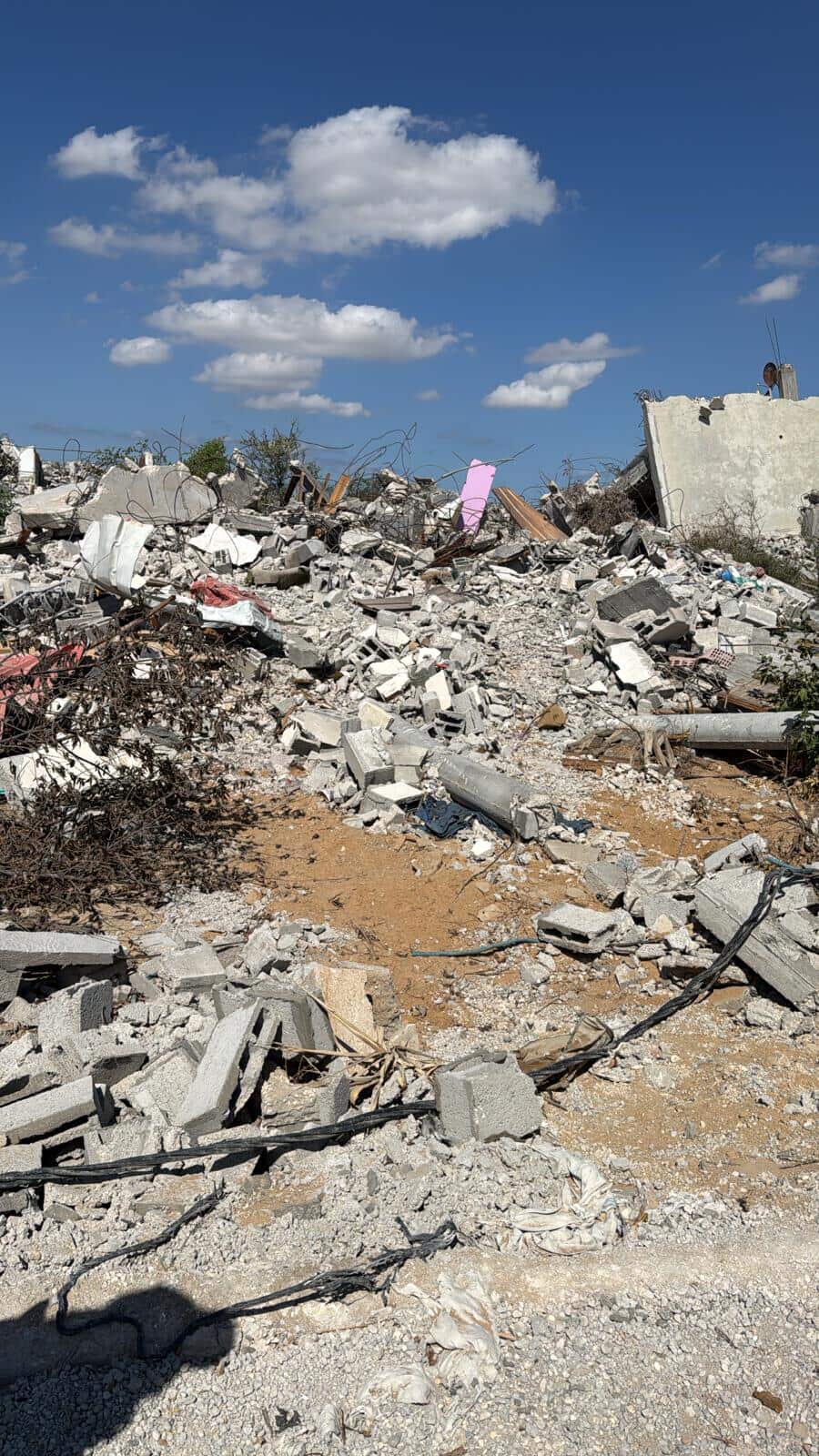
“Now, the Israeli army has taken control of the area and destroyed the neighborhood,” he said. “No one is allowed back.”
Seeking refuge, his family was forcibly displaced more than 20 times before finally reaching what the Israeli army designated the “humanitarian safe zone” of Al-Mawasi. There, they set up a tent among thousands along the sandy coast, and Reada took on the daily responsibility of traveling long distances to fetch water and firewood, buy food, and secure other necessities.
Despite these hardships, he, like many other students in Gaza, refused to abandon his dreams. He spent hours in local cafés, keeping up with his studies through online lectures and paying exorbitant fees for a stable internet connection and a clean, quiet corner to study.
A video edited by Kareem showing clips of his daily life in Al-Mawasi, Khan Younis
A testament to his devotion, Reada was awarded a scholarship to continue his education in Germany, but, as he explained, with Israel controlling Gaza’s border crossings, “that door was closed, like the borders of Gaza themselves.”
Months later, however, a new opportunity emerged. He was granted admission to study in Egypt. With the achievement of a ceasefire deal and the anticipated reopening of the Rafah border crossing, his dream of finally donning his white coat is nearly within reach, though obstacles still stand in his path. Even with the scholarship, the remaining tuition fees and the costs of leaving Gaza are overwhelming for his family.
"This is the thin line between me and my future," Reada said. "Your help could be the bridge that allows me to cross, to pay what is needed, and to finally begin the studies I have been fighting so hard not to lose."
During the event, SJP sold crafts to help raise funds for Reada's education, turning solidarity into tangible support. His words transformed Gaza’s suffering from distant statistics into raw, lived reality, leaving UF students deeply moved and more aware of the urgency of the Palestinian struggle.
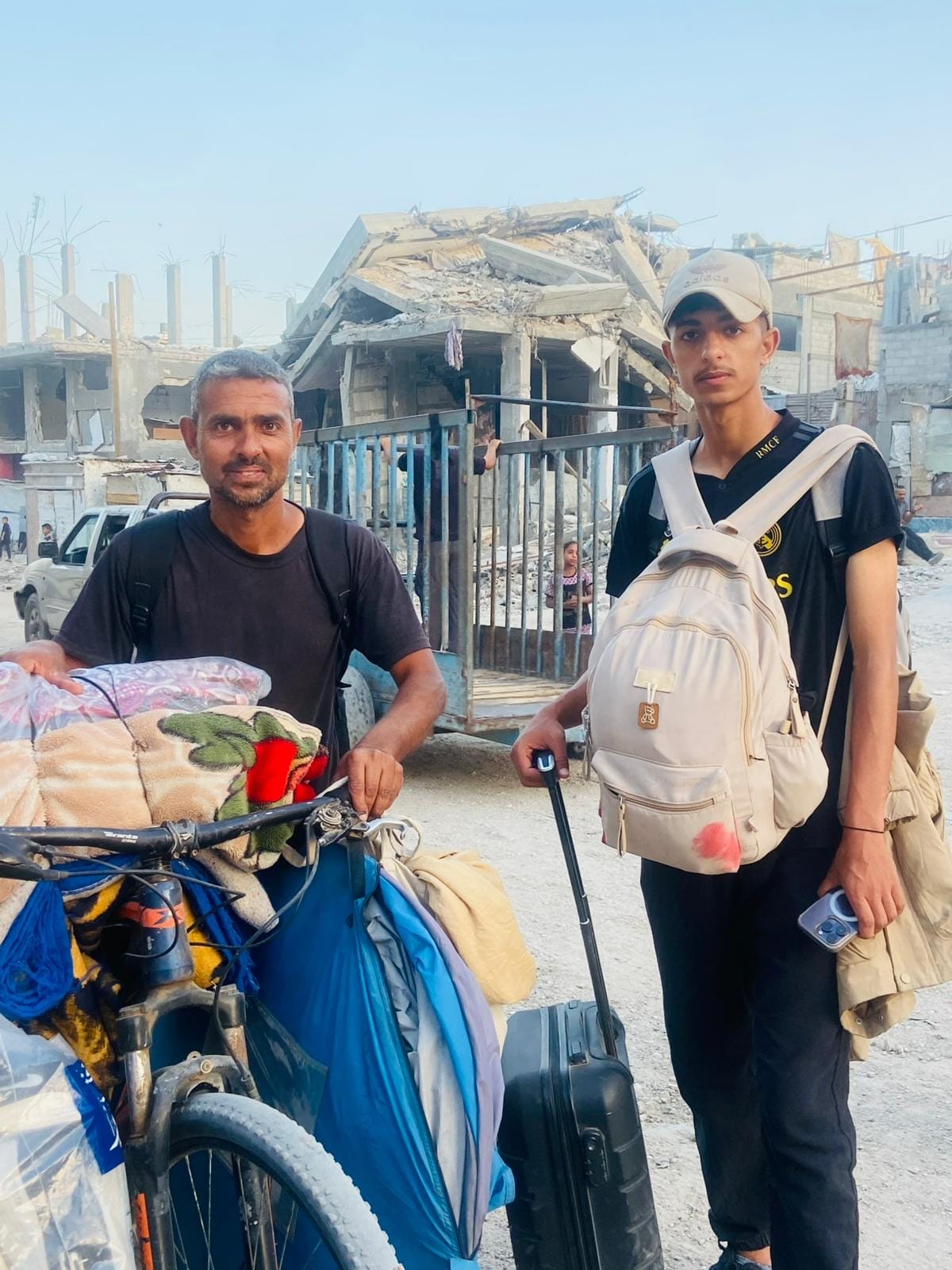
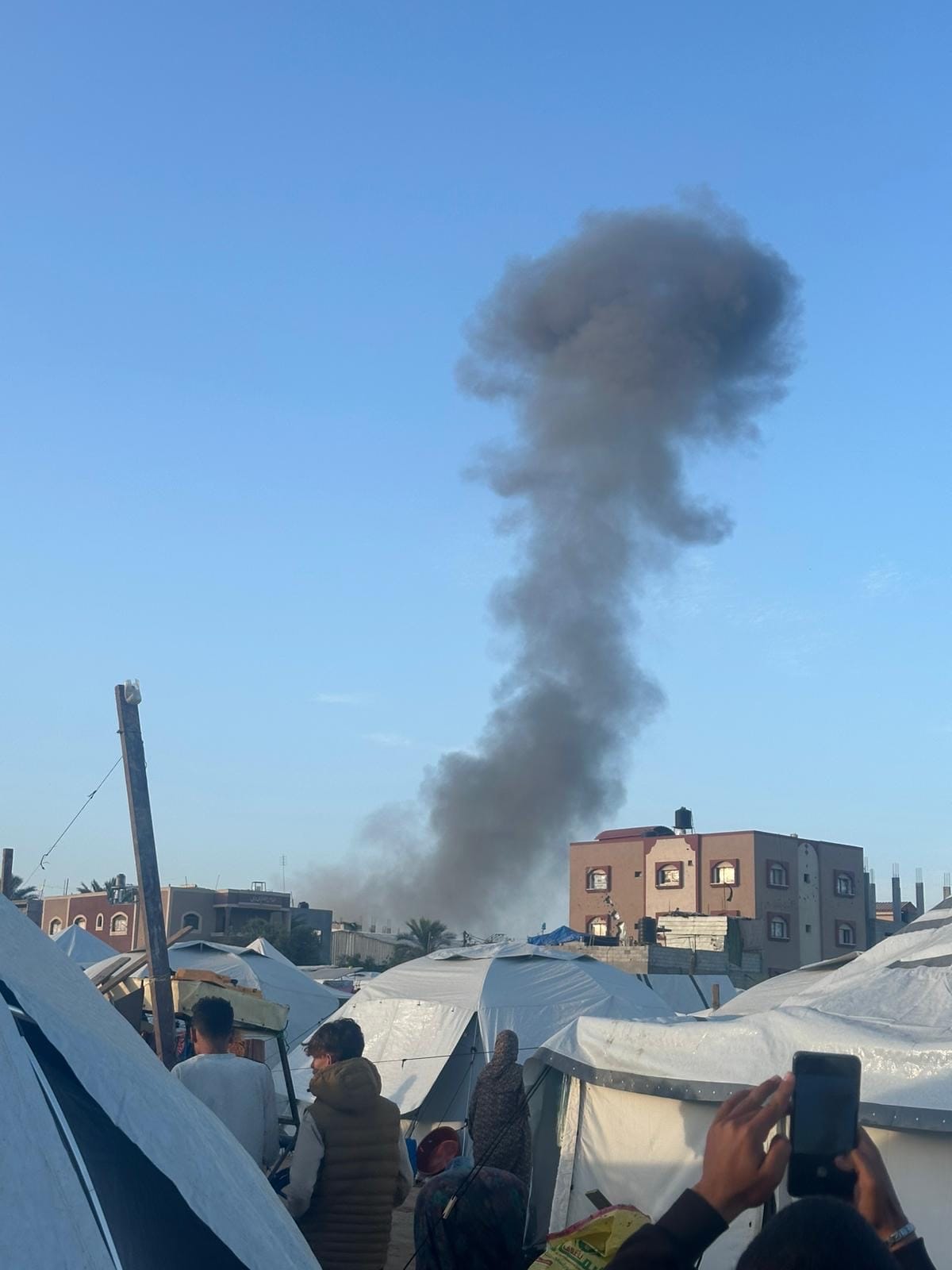
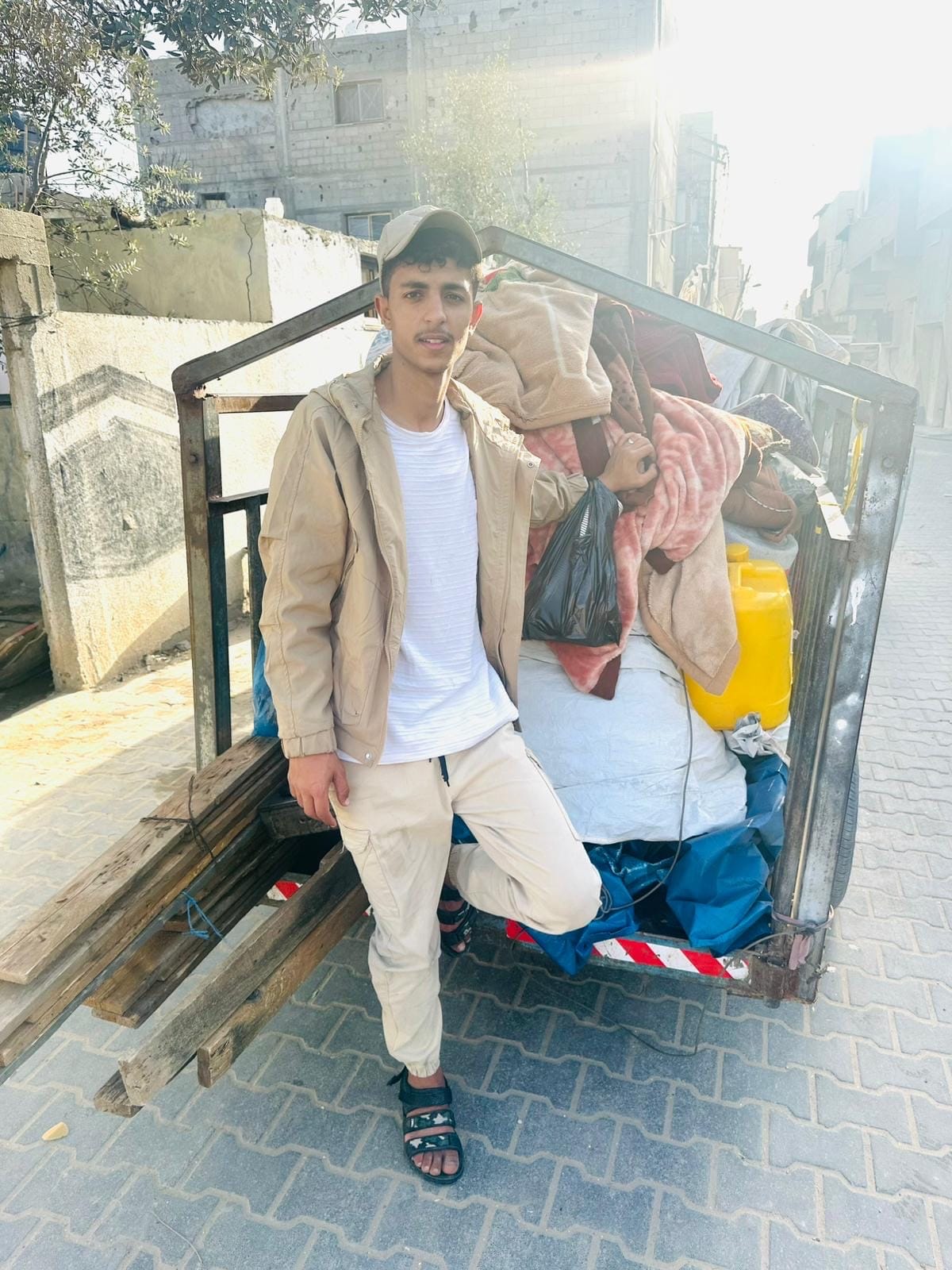
Images shared during the SJP event of Kareem and his experience of forced displacement
At the end of his talk, SJP opened the floor for a Q&A session, during which members of the Gainesville community asked what actions they could take to support Palestinians in Gaza. The questions ranged from how to raise awareness on campus to what material aid could reach students still trapped under siege. Reada explained that Palestinian students have been silenced, cut off from the world by communication blackouts and isolation. He urged listeners to use their privilege and platforms to keep Gaza visible and amplify its people’s voices.
“Your voices, your compassion, your solidarity — they can open the doors that are now closed. They can give me, and thousands of other students in Gaza, the chance to reclaim our futures."
SJP hopes that by centering stories like Reada’s, it can help build toward a free Palestine defined by Palestinians themselves, saying that true solidarity begins with recognition and support.
“Getting to know the names behind the numbers, the stories behind the names, and the souls behind the stories is how we connect as humans," Muntaha Islam, one of the event organizers, said.
To contribute to Kareem Reada's education and support his family, consider donating to the link below:

